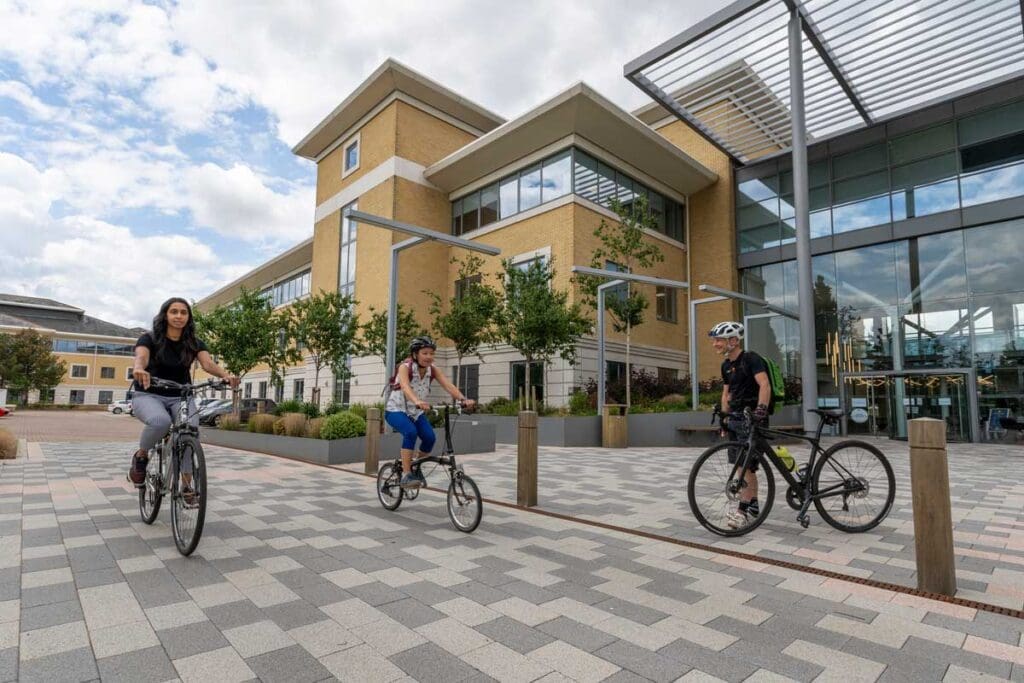Compulsory Active Travel Consultation for Big English Housing Developments

York, UK
Active Travel England (ATE) must now be consulted for all large housing development applications in England that exceed certain criteria, under planning regulations introduced from 1st June.
The organisation will be a statutory consultee for all planning applications for developments equal to or exceeding 150 housing units, 7,500m2 of floorspace or an area of five hectares, to help planning authorities implement good walking, wheeling and cycling infrastructure.
A statement by ATE estimates the requirement is likely to apply to around 3,100 applications a year, equating to 60% of new homes.
“The new role will enable ATE to help planning authorities in their work to implement good active travel design – for example, by ensuring developments include walking, wheeling and cycling connectivity to schools and local amenities. This will help improve public health, save people money and reduce harmful emissions,” the statement says.
“Building in active travel at design stage will also help to avoid big increases in vehicle traffic and reduce the need for costly upgrades to major road junctions or other corrective action in the future.”
The statutory consultee status follows a nine-month pilot project in which ATE worked with 30 local authorities to assess more than 60 developments in 2022.
In a survey at the start of the pilot, 80% of respondents agreed ATE should have a role in the planning system.
While ATE will be consulted on developments that meet the thresholds, it will not have any statutory powers to direct the outcome of planning applications.
ATE worked with the Department for Levelling Up, Housing and Communities to ensure its thresholds as a statutory consultee were set at an appropriate level.
Active Travel Commissioner Chris Boardman said: “Designing activity back into our neighbourhoods and creating places where children have transport independence is achievable – it just needs smart planning.”
